The best heart rate monitors 2025 Get pinpoint-accurate workout data
The best heart rate monitors for runners, cyclists and swimmers
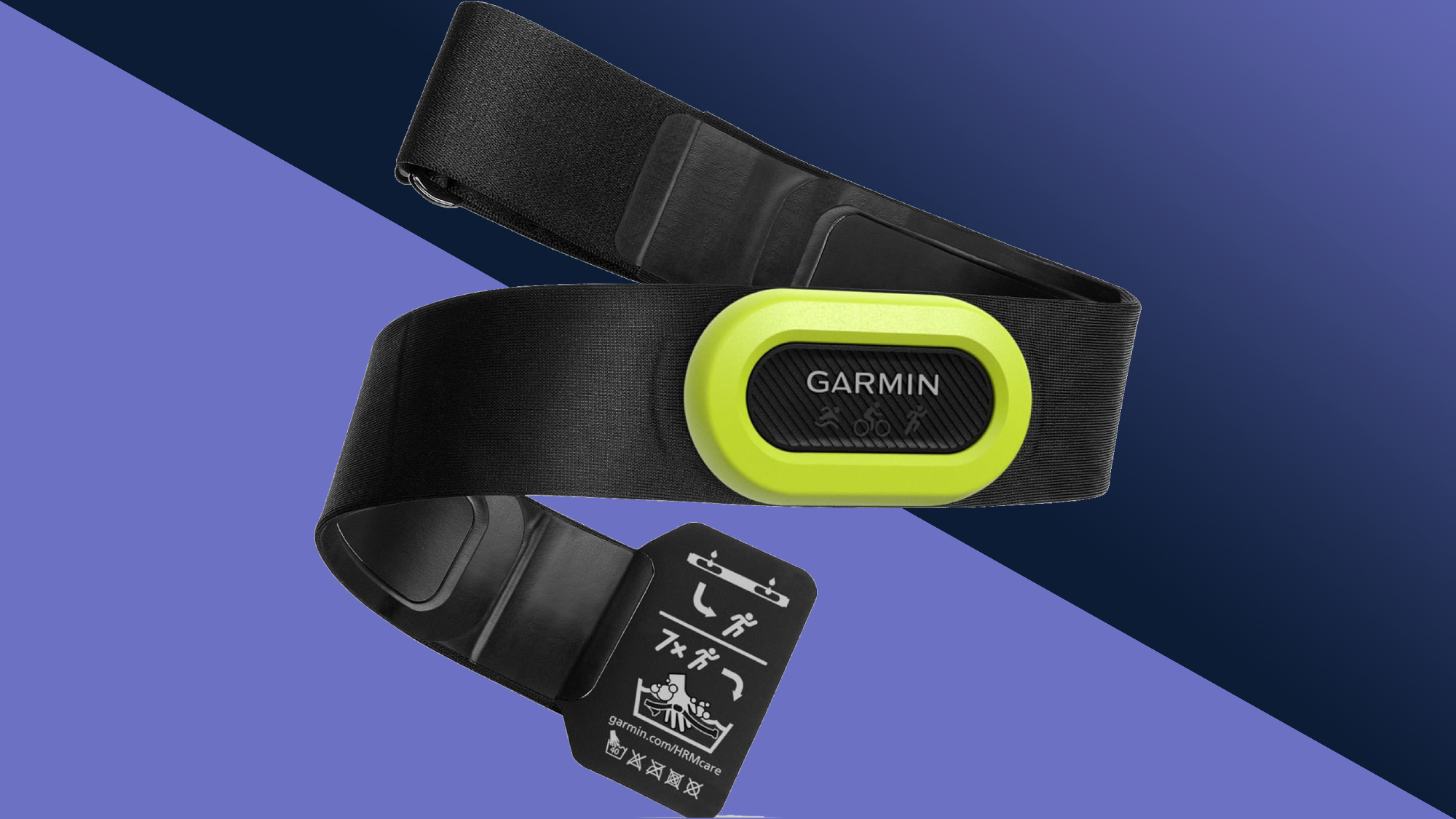
Sign up for breaking news, reviews, opinion, top tech deals, and more.
You are now subscribed
Your newsletter sign-up was successful
The best heart rate monitor on the market is the logical next step in your training armory if you want to take to your health and fitness to the next level.
While the best fitness trackers and best smartwatches come with heart rate monitoring, they'll never match the precision of a dedicated chest strap or a wrist-based monitor.
The best heart rate monitors measure the tiny electrical impulses from your heart. Not only does this give a more accurate reading than your average Garmin or Apple Watch, but it also means you'll get faster real-time updates as your heart rate changes, which is important for training.
If you're looking for the best heart rate monitor, chances are you're already sold on the general benefits. Our guide consists broadly of chest straps and wrist-based wearables, although we recommend chest straps if you want the most accurate and comfortable solution.
We've reviewed every heart rate monitor here, giving each one a score out of five for design, features, performance, and, of course, value. We use that data to collate our best picks, and you won't find any devices here that we haven't rigorously tested.
So here are the best heart rate monitors you can buy in 2024.
The quick list
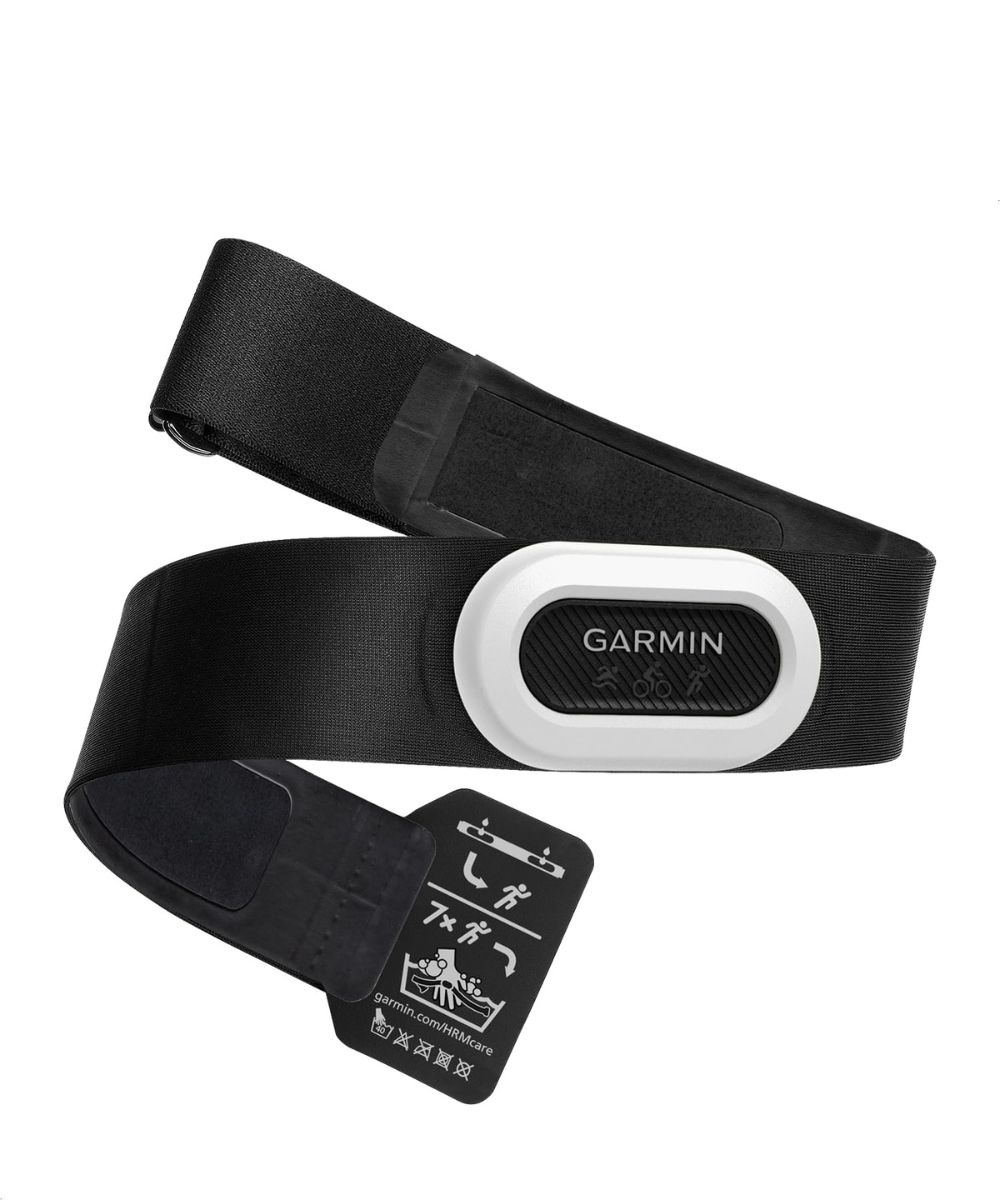
The best heart rate monitor overall
It's accurate, responsive, and suitable for all types of sports, whether you're on land or in water. It's also compatible with a wide range of devices and apps.
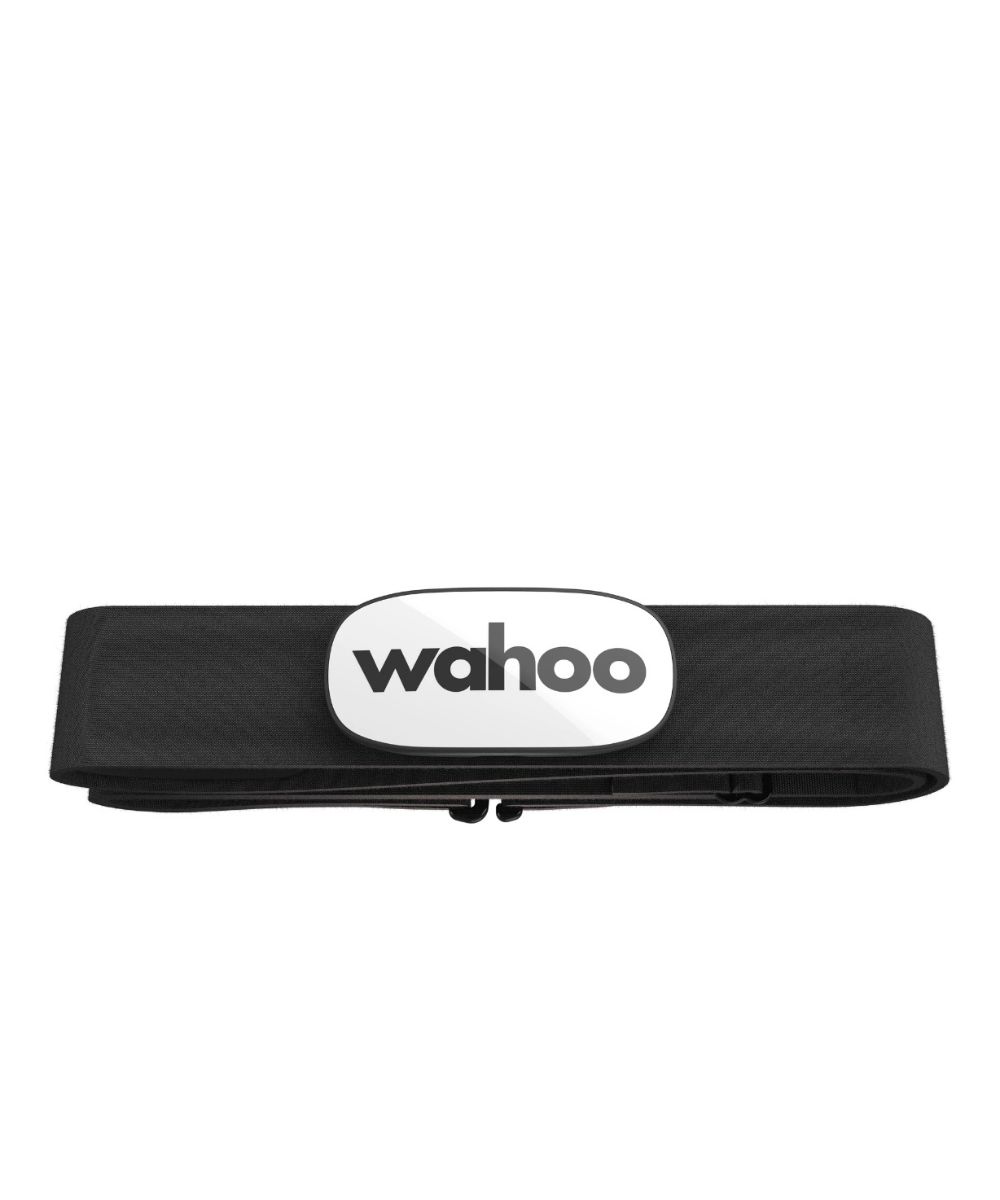
The best budget chest strap monitor
A professional-grade heart rate tracker that comfortably straps around your chest. Guaranteed to deliver accurate and clear heart rate data which is ideal for those wanting to physically improve themselves.
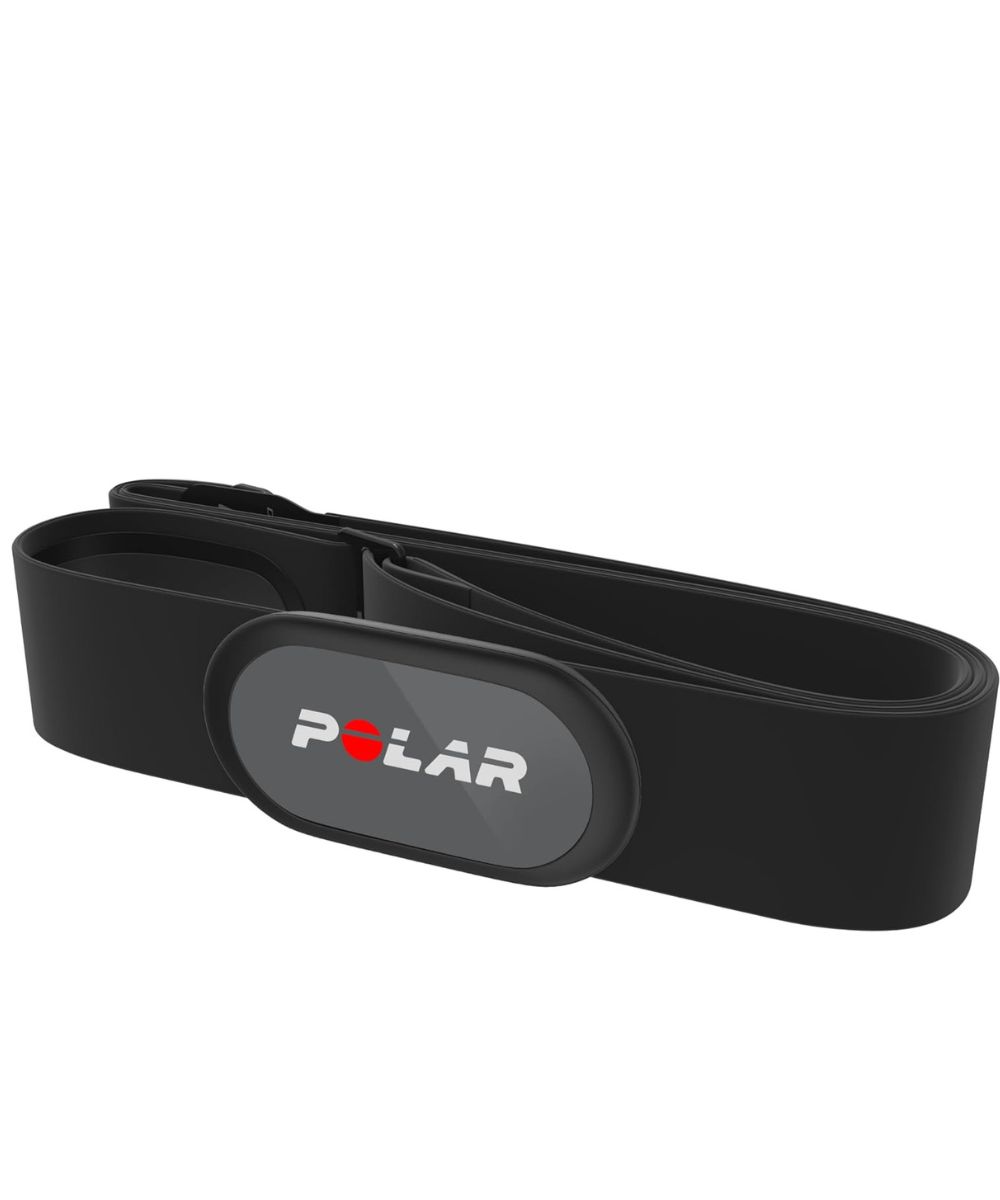
The best premium heart rate monitor
If absolute accuracy is what you're after, then you can't get much better than the Polar H10. You'll also get the ability to track V02 Max as well as an in-built accelerometer.
Load the next two products...
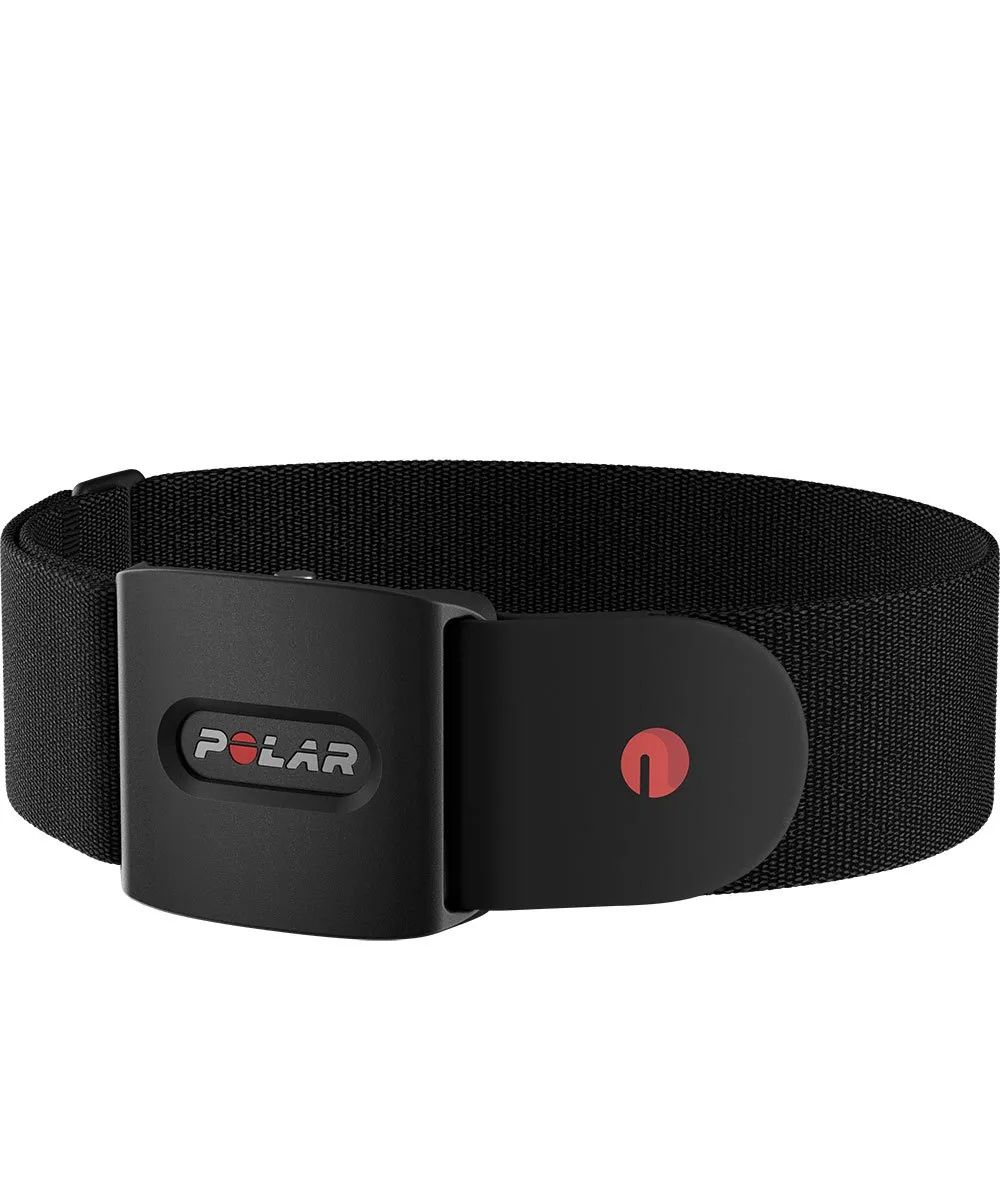
The best option for those who don't like chest straps
The ability to wear this heart rate monitor on your arm or attached to your swimming goggles makes this a great alternative to chest strap options. Polar's biometrics experience delivers an excellent monitoring device.
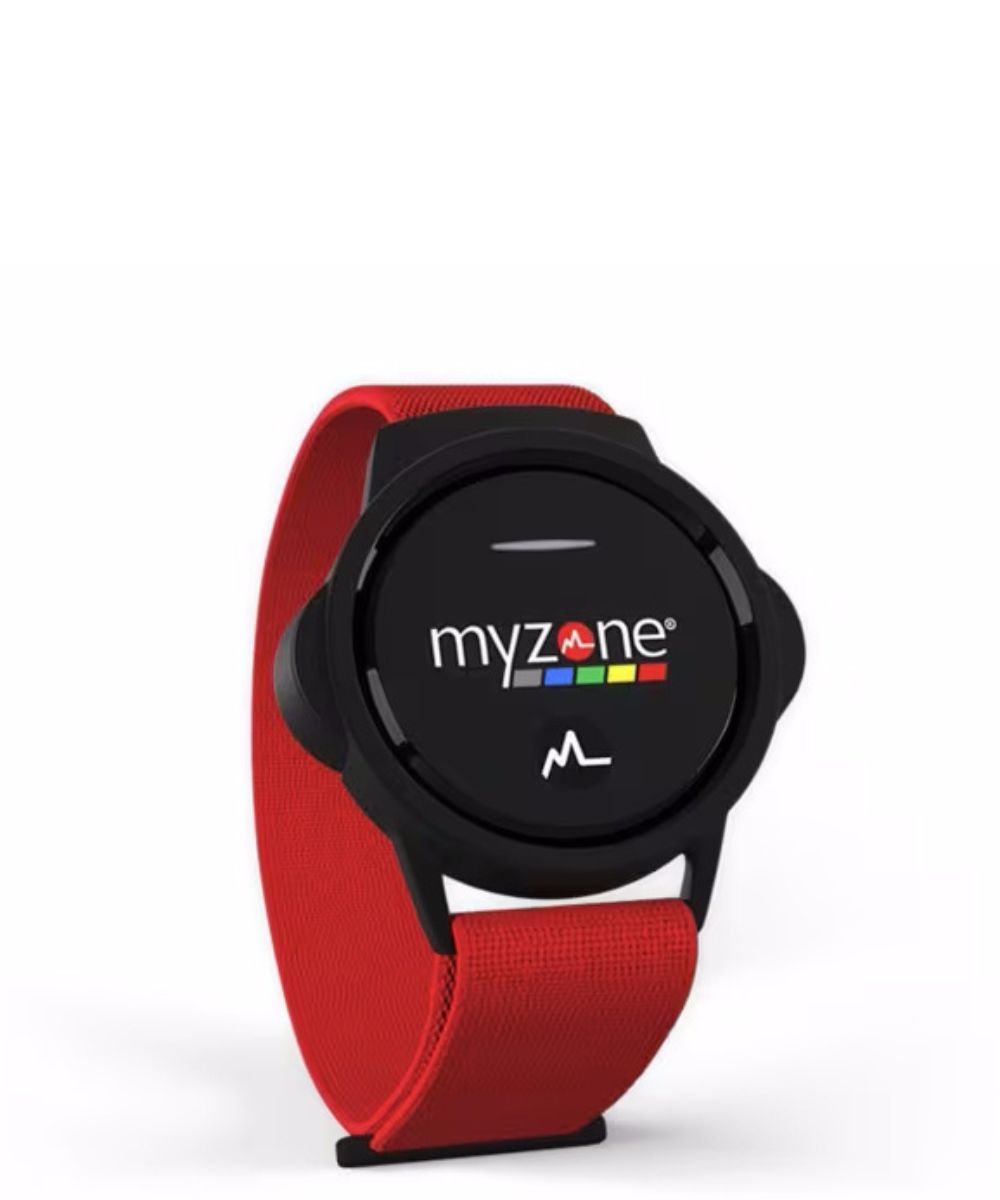
The best of both worlds
A heart rate monitor that gives you an ECG sensor on your chest and an optical sensor on your wrist or arm. It's clever enough to know where you're wearing it so the experience is absolutely seamless.
The best heart rate monitors
Why you can trust TechRadar
The best overall
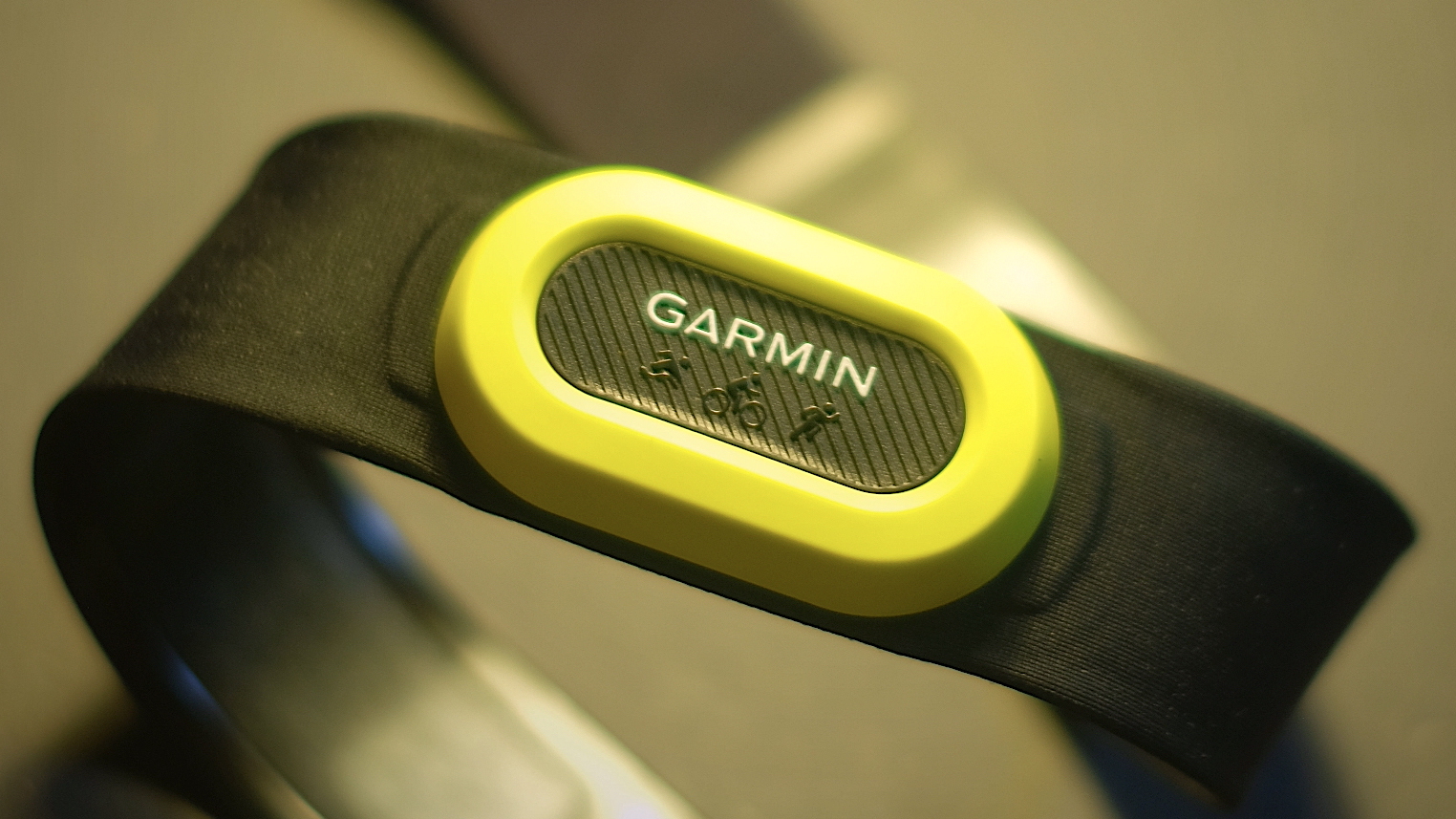
Specifications
Reasons to buy
Reasons to avoid
Chest straps are the gold standard, and the Garmin HRM-Pro is our number-one choice for the best heart rate monitor. Its reports are accurate and responsive, and in our tests, we particularly appreciated its compatibility with a huge range of devices and apps.
This is a true multi-sport device that's suitable for land and water. While many modern sports watches can record heart rate while swimming, their accuracy varies greatly, and a chest strap is easily the more reliable option. Wireless signals transmit poorly in water, but the HRM-Pro can store up to 18 hours of data before syncing.
The HRM-Pro also offers running dynamics info, including details of vertical oscillation, stride length, and contact time, which are challenging or impossible to measure with a device on your wrist.
It's one of the most expensive monitors in this roundup, but not by much, and is a worthwhile investment if you're serious about intensity training.
Read our full Garmin HRM-Pro review
The best budget chest strap monitor
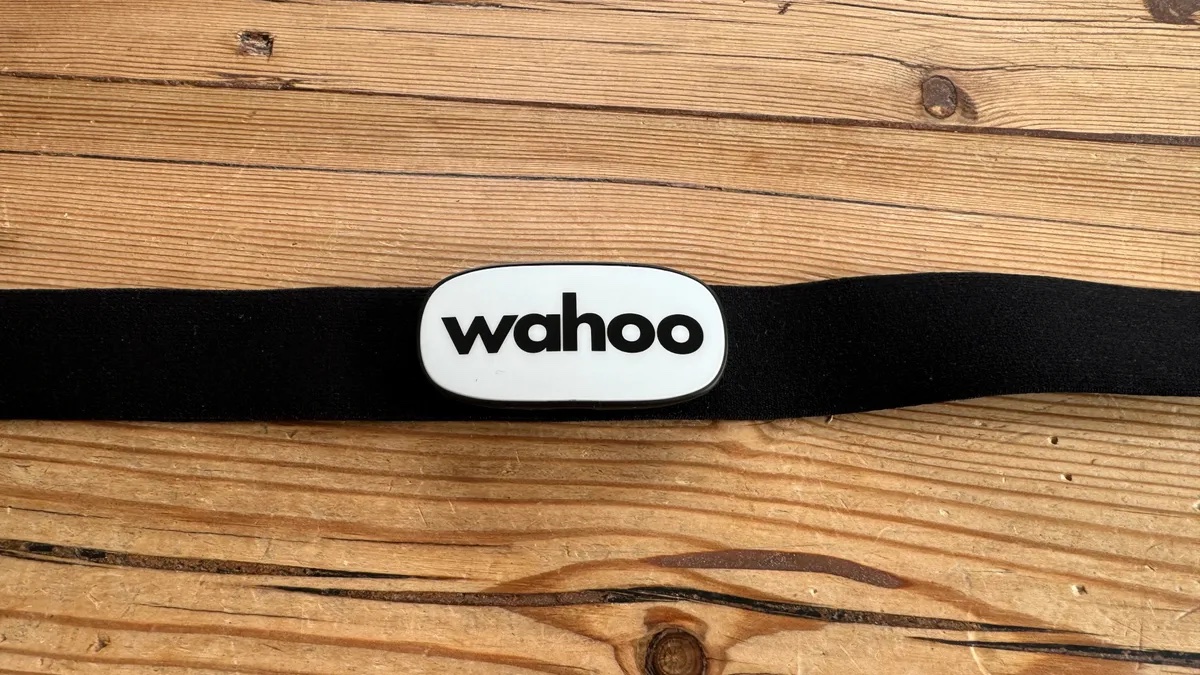
Specifications
Reasons to buy
Reasons to avoid
The Wahoo Trackr heart rate monitor chest strap is a professional-grade heart rate tracker. Having worked with Team GB athletes, the Wahoo team certainly knows what they're doing.
If you value accurate and clear heart rate data, then the Wahoo Trackr is one of the best. Compared to smartwatches, physical chest trackers provide much more accurate data that can be relied upon for improving performance.
You won't find SpO2 tracking abilities which puts it a little bit behind what you'll often find in many smartwatches now. It also only has an IPX7 rating so if swimming is your thing then you'll need to look elsewhere.
Despite these limitations, the Wahoo Trackr does a few simple things incredibly well. It's comfortably, unbelievably accurate, and delivers a wide-ranging set of metrics through the Wahoo app.
Read our full Wahoo Trackr review here
The best premium Polar heart rate monitor
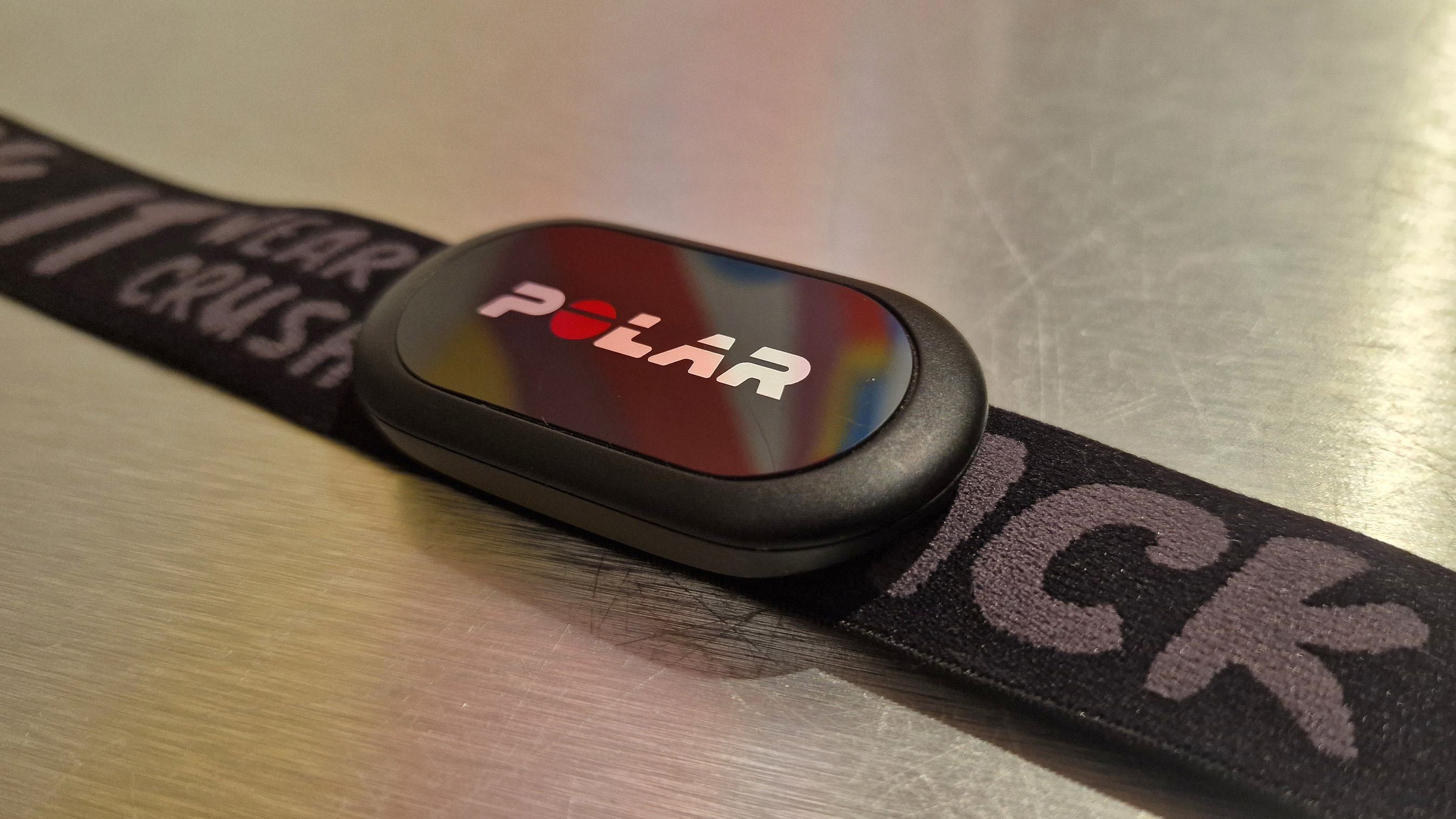
Specifications
Reasons to buy
Reasons to avoid
The Polar H10 heart rate sensor is the best Polar sensor when it comes to accurate results. With up-to-date tracking improved over the H9, the Polar H10 is a beast of a tracker with an impressive battery life. You can assess your general fitness level with stats like VO2 max, and it's got an in-built accelerometer like all the best heart rate monitors.
It's not quite perfect - the app is a little clumsy to use - and it's a bit more expensive than the H9, which can be picked up for a song. But if you're after reliability, it's more accurate than a smartwatch, and whether you choose the HRM Pro over this all boils down to whether you find Polar easier to integrate with than Garmin Connect, as that's how you'll get the lion's share of your stats, and whether you need an ANT+ connection. But it can store up to 30 hours of workout data, which the H9 doesn't.
Read our full Polar H10 review here
The best if you dont like chest straps
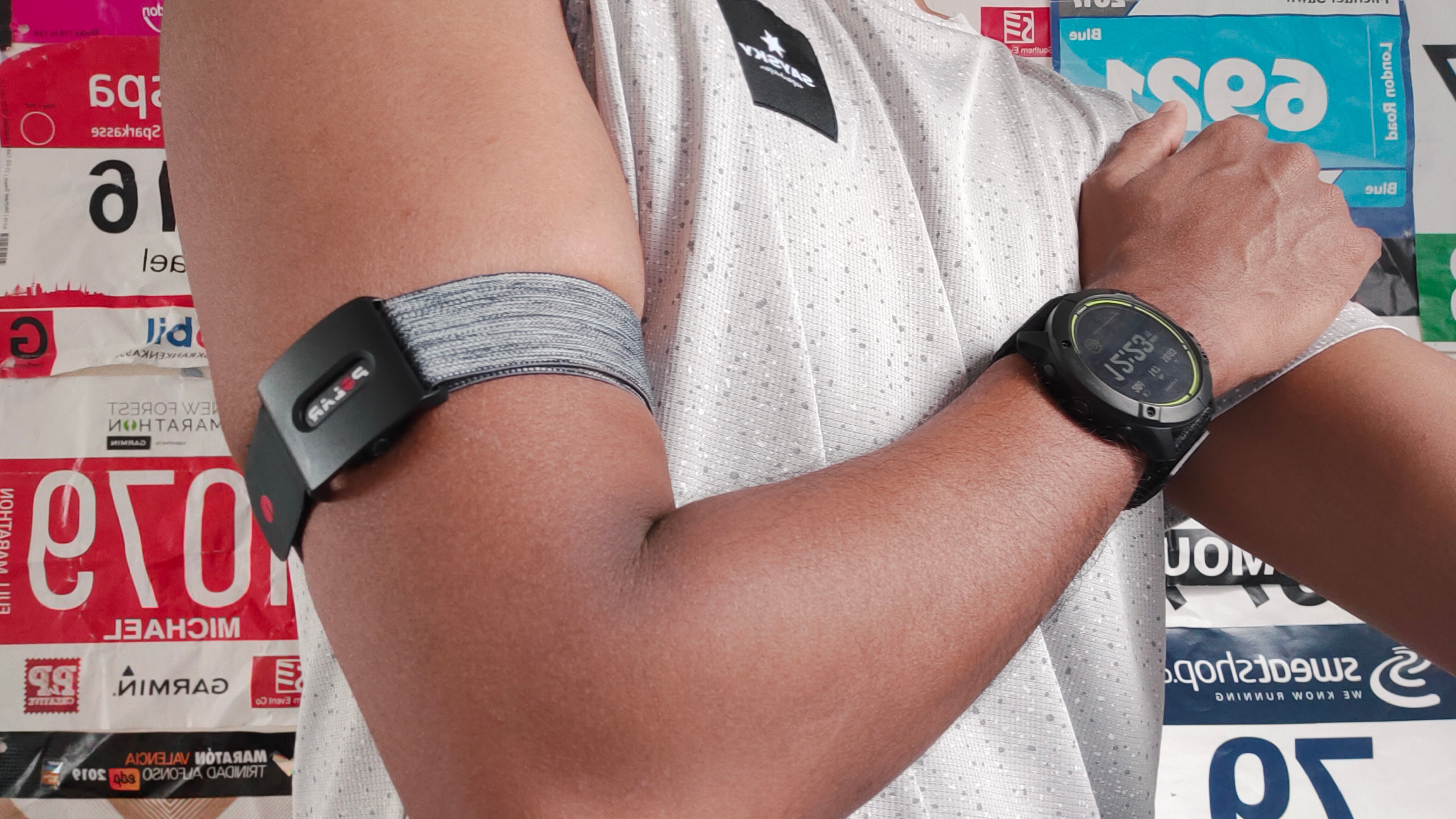
Specifications
Reasons to buy
Reasons to avoid
In the same way that Garmin made its name in GPS technology, Polar has a long heritage in biometrics, and that really shines through in the accuracy of data from the Polar Verity Sense.
It can be worn on your arm or attached to your swimming goggles, making it a good choice for anyone who doesn't get on with a chest strap. It uses an optical sensor like those on a sports watch, but the positioning means there are fewer artifacts from movements like gripping.
The Polar Verity Sense can be a little awkward to wear with long sleeves, but in our tests, we were impressed by its ability to transfer data to multiple devices, 20-hour battery life
Read our full Polar Verity Sense review
The best for delivering the best of both worlds
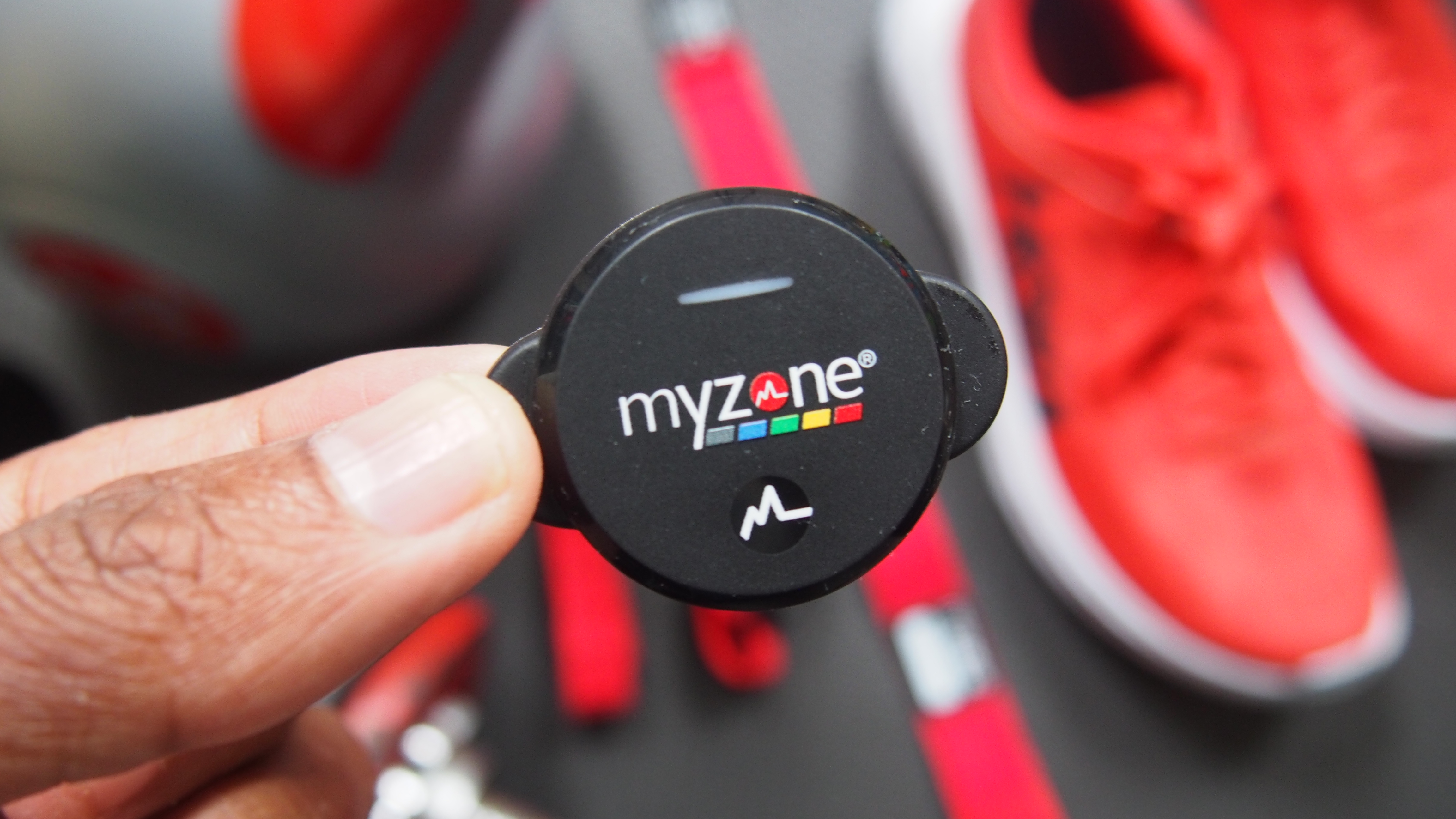
Specifications
Reasons to buy
Reasons to avoid
The MyZone MZ-Switch gives you the best of both worlds: an ECG sensor so it can be worn on your chest and an optical sensor so it can sit on your wrist, arm, or a pair of swimming goggles. It automatically detects where you're wearing it, so there's no need to worry about switching modes, and although it would be nice to have a choice of different armband sizes, it's comfortable to wear for any type of workout.
That includes swimming; the MZ-Switch is water resistant to 10 meters and stores up to 36 hours of data, so as with the Garmin HRM-Pro, there's no need to worry about syncing when you're in the pool.
When used in chest strap mode, its results compared well with those from the HRM-Pro, though the limitations of technology mean results from the optical sensor have a wider margin of error. Our main criticism is that the MyZone companion app is too busy and cumbersome for our liking, but the device also pairs with compatible third-party apps, so this shouldn't deter you.
Read our full MyZone MZ-Switch review
How we test the best heart rate monitors
Most heart rate monitors on this list are tested by expert reviewers who take these wearables running, cycling, and swimming to test all the features they have to offer. Heart rate tracking accuracy is checked against the model's predecessors but also other brands to determine which is more accurate.
Heart rate monitors generally have fewer features on board than smartwatches (i.e. there is no display or smart features), so testers focus on the data captured, as presented in the heart rate monitors' companion apps. Another important aspect is connectivity, and how quickly the heart rate monitor picks up a connection with other wearables/fitness machines; this is also thoroughly tested. You can check out our how we test page for more information.
How to choose the best heart rate monitor for you
When buying a heart rate monitor, there are a few things to consider, the most important being whether you need a chest strap or an armband. The former group is better for accuracy, while the latter is considered more convenient to wear. Battery life is also crucial; the replaceable battery in chest straps usually lasts for a year, while armbands – that often have optical heart rate sensors – have a much shorter battery life (under 24 hours).
You should also consider the brand of the heart rate monitor, especially if you have a smartwatch already. Garmin chest straps pair well with Garmin watches, and the same goes for Polar/Wahoo wearables, so if you're after excellent connectivity, make sure both wearables are from the same brand.
Pro tip: if you want to use a heart rate monitor with an exercise bike/treadmill/turbo trainer, check the manufacturer's website to see which brand and model they recommend.
Sign up for breaking news, reviews, opinion, top tech deals, and more.

Matt is TechRadar's expert on all things fitness, wellness and wearable tech.
A former staffer at Men's Health, he holds a Master's Degree in journalism from Cardiff and has written for brands like Runner's World, Women's Health, Men's Fitness, LiveScience and Fit&Well on everything fitness tech, exercise, nutrition and mental wellbeing.
Matt's a keen runner, ex-kickboxer, not averse to the odd yoga flow, and insists everyone should stretch every morning. When he’s not training or writing about health and fitness, he can be found reading doorstop-thick fantasy books with lots of fictional maps in them.